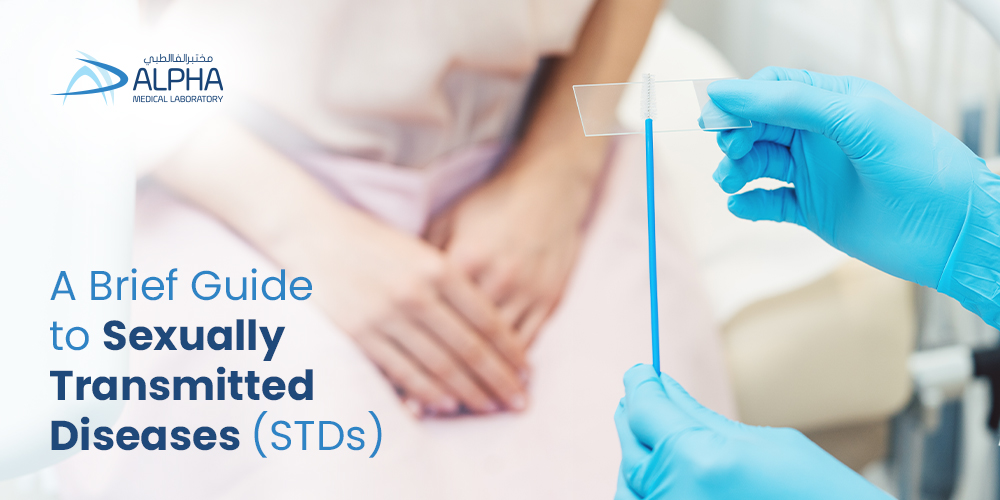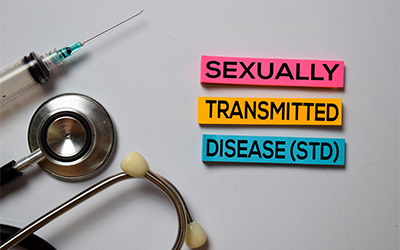
Sexually Transmitted Diseases or Infections – STDs/ STI’s are infections which are transmitted through sexual activities or unprotected sex with sexually active individuals . Often at times, these infections are not lethal and do not harm or show immediate signs or symptoms , however they can aggravate if left untreated and turn into elaborate illnesses.
For many people, it brings a traumatic or taxing experience as sharing it with their physician is hesitative and strenuous for people. Often, this is a result of the stigma attached to it. However, it is paramount for people to know that conducting sexual activity is not the sole reason for sexually transmitted diseases or infections. Even using instruments such as needles that have been used on the infected blood can become a transition factor.
According to the World Health Organization (WHO), over 1 million individuals are detected with STI transmission daily, most of whom are asymptomatic. In addition to this, every year, 374 million people are subjected to STIs in their bodies. And the entire affected ratio isn’t because of sexual activity but rather with the abuse of drugs and sharing of septic drug needles, or a mother may infect her child while pregnant, during childbirth, or nursing.
There is a misconception that must be cleared in the first place. But to be clear, STDs are not spread through normal contact, and shaking hands, sharing garments, or sharing a toilet, for example, would not evolve STDs.
Essential Things to Know About STDs
In this article, we have evaluated the critical information to provide you with awareness about STDs or STIs. The types of STDs exist in a person and the explanation of STDs. If you have had physical contact with someone and feel the symptoms of STDs, this piece will acknowledge taking the necessary steps and sway you to undergo an STD test for your benefit and information before it is too late.
What are STDs?
Sexually transmitted diseases or infections (STDs or STIs) are exceedingly widespread. Every year, millions of illnesses are discovered worldwide. Sexual contact between two people might spread STDs to them. Intimate physical contact, such as frequent petting, can also spread them, though this is less common.
It’s possible that minor symptoms are all an STD would ever produce. So it’s likely to have an infection and not even be aware of it. Therefore, if you have sexual activity, getting an STD test is crucial. Be aware that almost all STDs are treatable with medication such as antibiotics, and some are completely curable if you are diagnosed with one. If you engage in sexual activity, be aware of how to prevent STDs for both you and your partners. So, you must be mindful of the different types of STDs, which are as follows.
Some Most Common Types of STDs or STIs
Here, we have the objective to teach our audience the best information that benefits making earlier assessments. It is crucial to have knowhow about the common sexually transmitted diseases or infections and ponder the noticeable indications so that you can determine and take a lab test for STDs at the correct stage. With this being said, here are some of the STDs:
1. HIV/AIDS
Human immunodeficiency virus is referred to as HIV. It compromises your immune system by obliterating a specific type of white blood cell that aids infection resistance. You run the danger of contracting serious infections and some malignancies. AIDS, on the other hand, is short for acquired immunodeficiency syndrome. It is the last stage of HIV infection. It occurs when a virus causes significant immune system harm in the body. HIV infection does not always derive from AIDS.
2. Gonorrhea
A sexually transmitted disease called gonorrhea is usually found in young adults. The genital tract becomes infected by the germs that cause gonorrhea. Having sex with a partner who is infected can cause gonorrhea. During labor, a pregnant woman can transfer it to her unborn child.
Not all cases of gonorrhea result in symptoms, and Gonorrhea in men can result in discharge and painful urination. If left untreated, it may result in genital and prostate issues.
Early gonorrhea symptoms in women are typically not severe. Eventually, it may result in increased discharge, pain during urination, and bleeding between periods. It can result in pelvic inflammatory disease, which affects pregnancy and infertility if left untreated.
3. Syphilis
Bacteria cause the sexually transmitted disease syphilis, affecting both men’s and women’s genitalia, lips, mouths, and genital area. Syphilis is typically spread through sexual contact with an infected person, and during pregnancy, it can also be passed from mother to fetus.
Typically, a single, tiny, painless sore appears during the initial stages of syphilis. In some cases, it causes the lymph nodes surrounding to enlarge. Syphilis frequently results in non-itchy skin disease, usually on the hands and feet, if it is not treated. Many people go years without noticing any symptoms, and symptoms can disappear and reappear.
4. Hepatitis A, B, & C
One of the numbers of viruses that target the liver is hepatitis A. Hepatitis A, B, and C can be spread through unprotected sexual contact, infected blood, fluids involved during sexual activity, and sexual intercourse. Medication and the beginning of treatment become necessary for the person because continuing without knowledge of the condition would weaken them internally.
5. Genital Warts
The human papillomavirus (HPV) causes genital warts, a sexually transmitted disease (STD). Warts typically show as a little lump or cluster of bumps in the genital area, and they are pink colored and can be flat or lumpy. Some genital warts are so small that they cannot be seen. Warts in women typically appear in or around the genitals, on the genital tract, or around the abdomen. Genital warts are less prevalent in men.
6. Herpes 1 & 2
Herpes is a benign virus that is classified as HSV-1 and HSV-2. The infection of herpes affects the individual by generating infected sores or blisters; body contact, such as sexual intercourse, enhances the likelihood of getting herpes. If you detect any symptoms, such as sores or blisters around the genital or rectum, you should take an STD test.
7. Chlamydia
Chlamydia has no symptoms, meaning that most people with this illness are unaware of it. According to medical science, it is transmitted by sexual contact without protection or by utilizing things for pleasure that contain infected particles
How Does Alpha Medical Laboratory Offer STD Testing?
The STD test in Dubai is a process in which our professional nurses and medical staff will travel to your desired location to collect a sample. You can also visit our laboratory for the sample collection process. Our team will follow the Dubai Health Authority’s guidelines to ensure accuracy and efficiency. Here is a sneak peek into our STD test process;
- The first step comes where our DHA-licensed and experienced staff will collect the sample of urine or blood and safely handle them to the testing facility – if you take at-home sample collection.
- Our healthcare providers will do a cheek swab by rubbing a soft swab inside your mouth, and this is a process where we singularly check for HIV.
- Our doctor may request a fluid sample from any sore for STD testing
- Our quick and discreet services keep you mentally calm and focused.
- We will always respect and take care of your privacy and confidentiality.
- We strive for 100% accuracy in our results, so you know when to begin your treatment for well-being and happiness.
- To ensure that high-quality protocols are met efficiently, our nurses and healthcare experts have a decade of experience and are DHA-licensed.
- We provide results within 24 hours.
Not to Worry - The Final Words
STDs can be avoided by taking the necessary precautions. The information provided above may be helpful to you. In contrast, we suggest that proper use of latex protections minimizes transmission. However, it is vital to note that it does not eliminate the risk of contracting or spreading STDs.
Furthermore, polyurethane protection can be used if you or your mate are allergic to latex. Avoiding inappropriate sexual intercourse is the most surefire strategy to prevent infection. If you have had sex, you should feel free to take an STD test to ensure your and your partner’s safety.

